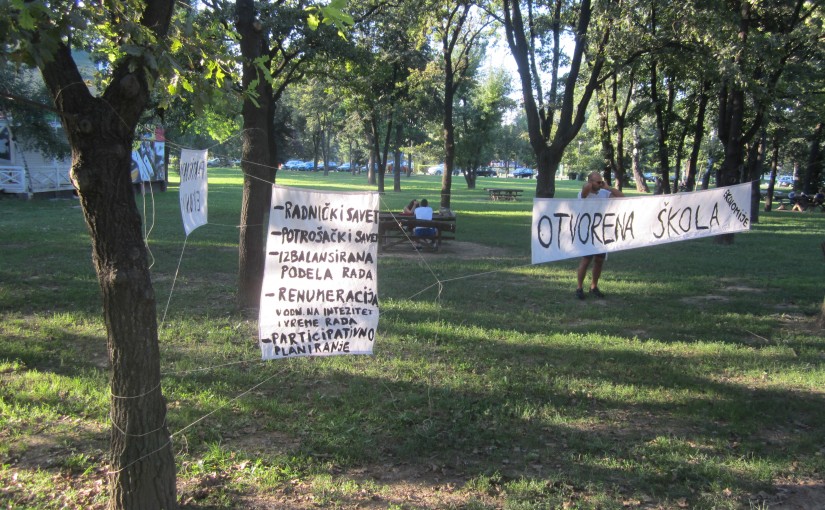participatory project, Belgrade, 2014.
The idea of the project “Open School of Economics” is based on a research and practical work in the promotion of alternative economical models that go beyond the neo-liberal economic system. Field of interest is the study of economic theories that offer potential opportunities for the development and establishment of economic exchange that is not sustained by the principles of individual profit entities but is driven by the interest of the community as a whole.
The aim of the project is to provide theoretical and practical alternative to the famous statement of former British Prime Minister Margaret Thatcher’s argument that “there is no alternative” to capitalism which, as such, is becoming ever more prevalent in global, practical, scientific and ideological spheres. In this regard, the project aims to intervene into practical field of economy and it is based on concrete work on the ground, trying to destabilize existing system directly or establish a new model of exchange “outside” the dominant system.
The project involves research, work -in -progress and participatory art project in the form of production of open platforms which is realized in the form of group workshops, open discussions and reading groups (for example, the sudden appearance of mini classroom in a public space, locating the reading groups in some specific places in which the applicability of alternative seemed more likely possible etc.).
Alternative theories of economics that project covered ware:
1 PARECON – Participatory Economics (Michael Albert , Chris Spannos) – a non-representational economic theory based on the idea of joint decision –making, depending on the level of influence something has on subjects, self-management model of work organization based on joint-work between producers and consumers and the equal distribution of goods;
2 Crom Theory (Damir Novotny , Krom Association) – the theory of small networks of local economies which imply the separate existence of a local currency in a small community – economy based on collaboration, rather than competition;
3 Inclusive Democracy (Anthony Giddens , Jon Elster , Takis Fotopoulos , Aran Gare etc.) – form of direct democracy which implies a model of political and economic decision-making that is more open to civic participation (minimalist and maximalist democratic participation);
4 Gift Theory (Marcel Mauss) – idea of a gift as the basis of exchange – an entity that gives something from him/herself as a subject which establishes a kind of gap in itself, but that gap then continues to circulate in the collective (unlike in capitalist societies where this kind of gap stays always with the subject)- idea of gift as a way of expanding the self to the whole community;
5 Economics of Care (Nansy Folbe) – Care Work – the role of caring for each other as a form of economic exchange (the “feminist” economy);
6 Time- banking (Edgar Cahn) – economy based on the exchange of time and skills, instead of goods and services;
7 The theory of self-management socialism (Edvard Kardelj) – the idea of collective ownership of the means of production and the idea of collective management of production process;
8 Environmental Economics and evolutionary economics (Joseph Schumpeter) – economic exchange through a different approach to nature;
9 Free Cooperation (“The Art of Free Cooperation” – Eds. Trebor Scholz and Geert Lovink) – a theory that attempts to reconcile the individual freedom and collective life through free cooperation and rejection of any kind of forced interaction;
10 “Change the World without Taking Power” (John Holloway) – small strategies of rejection of neoliberal capitalist system as a new concept of revolution;
11 Ethical Banks , Organization for Development of Society (Nationwide) , credit unions (London Mutal) , the Financial Institutions Development Society (CDFI) – organizations whose operations involve certain kind of “sacrifice” for society , taking care of the environment and so on.
Video: https://www.youtube.com/watch?v=i4z5gVDpiko
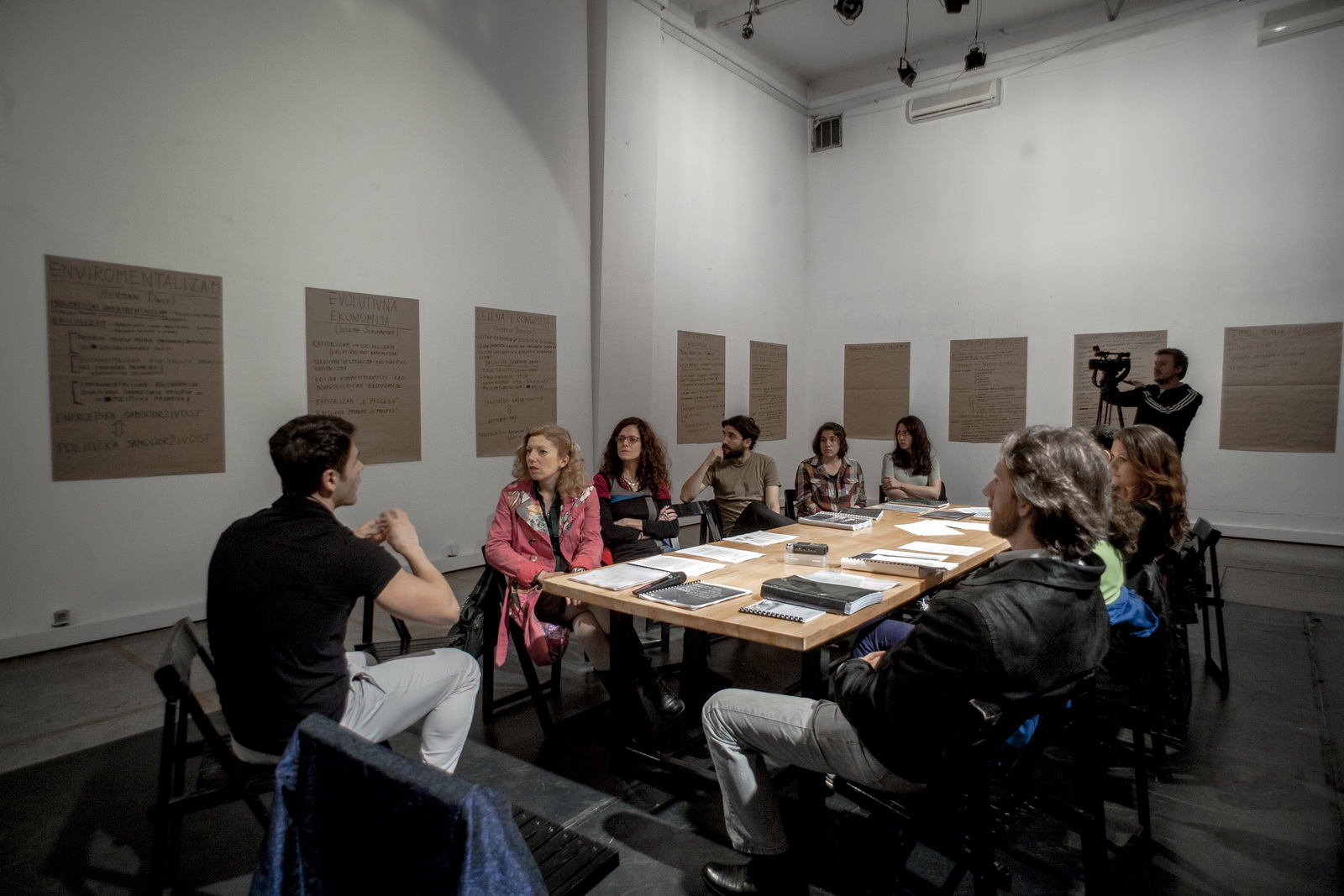
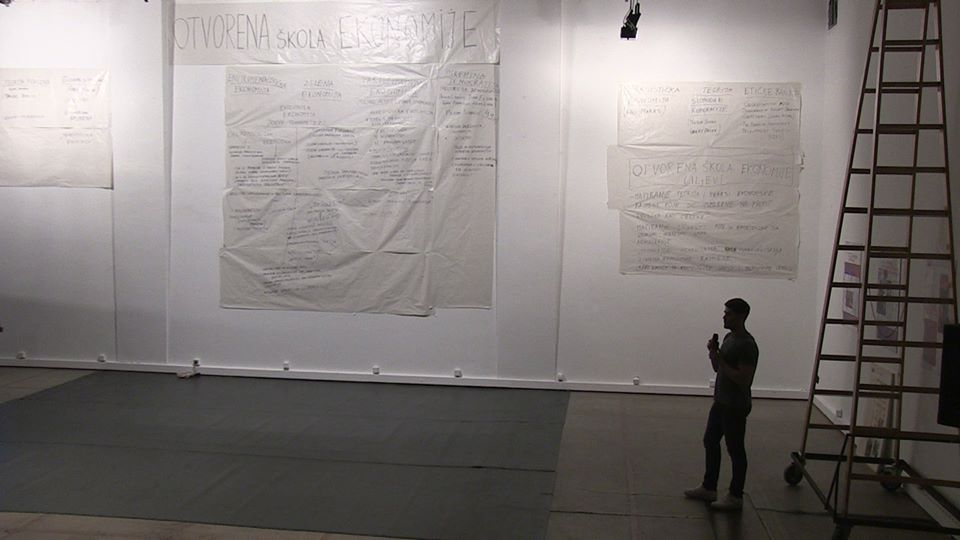
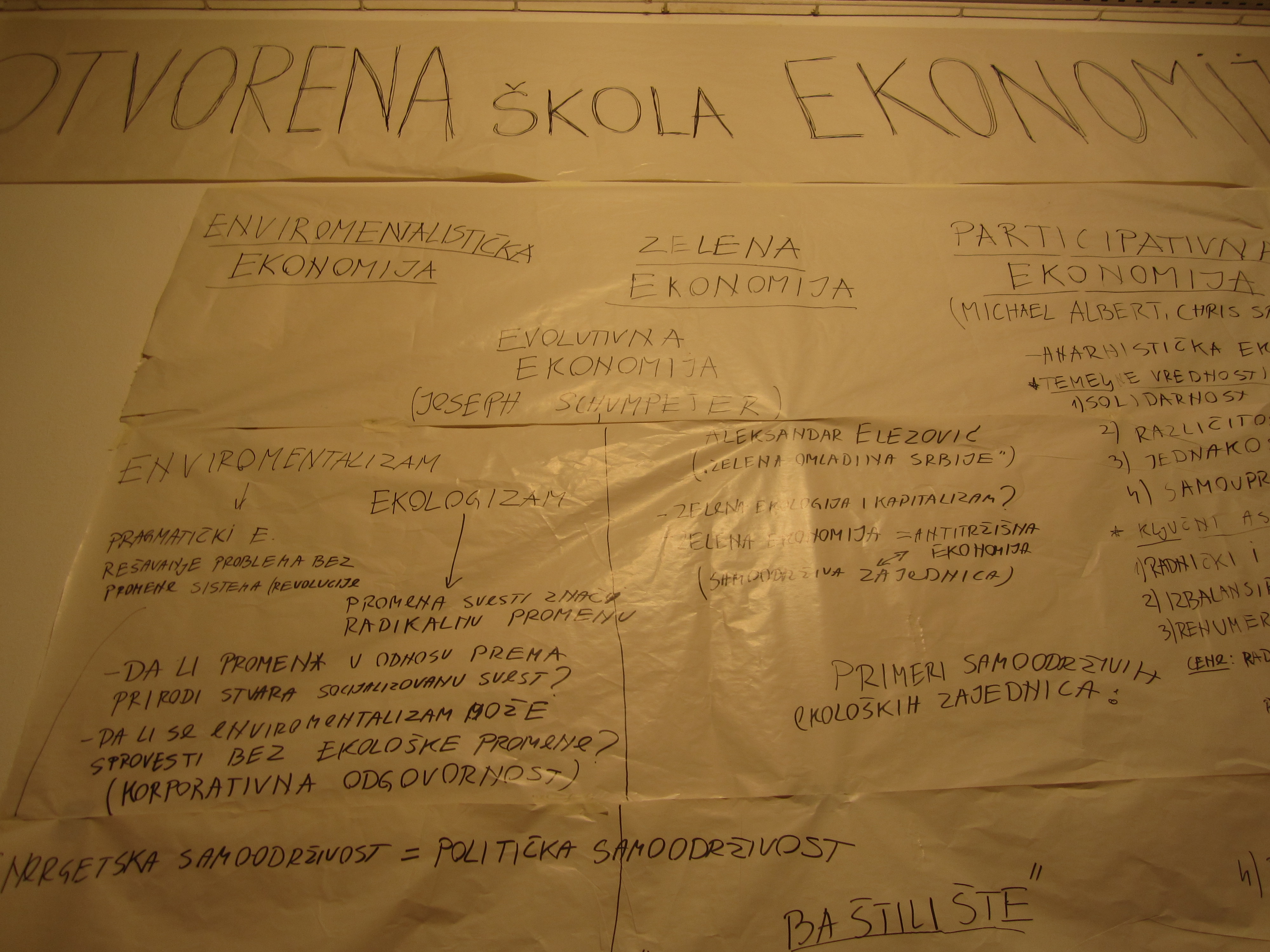
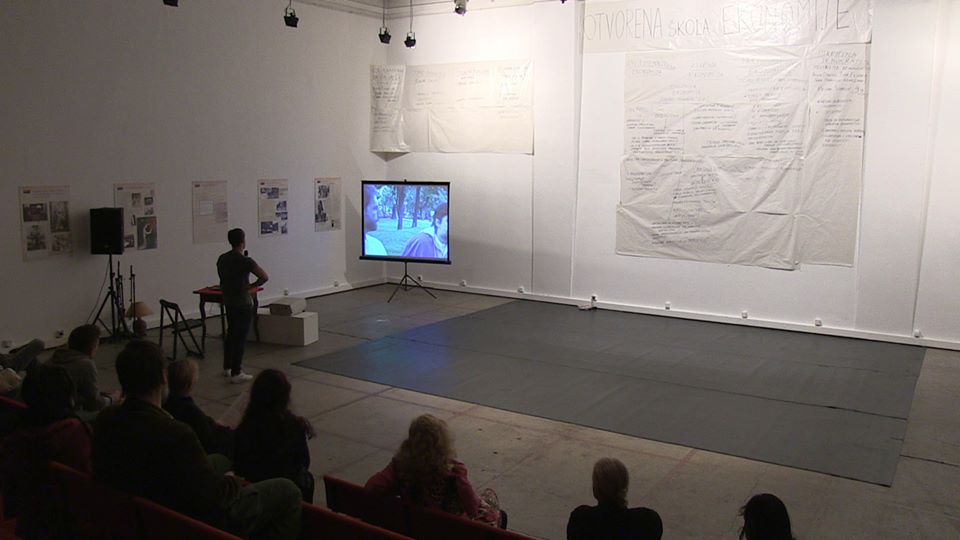 Video (one of the classes/serbian language only): https://www.youtube.com/watch?v=i4z5gVDpiko
Video (one of the classes/serbian language only): https://www.youtube.com/watch?v=i4z5gVDpiko
Participants: Aleksandar Elezović, Aleksandar Stojanović, Ana Milovanović, Andrea Jovanović, Branislav Dimitrijević, Danilo Prnjat, Dragan Protić Prota, Hristina Mikić, Ivan Božić, Jovana Zafirović, Luka Petrušić, Marija Ratković, Milica Mustur, Milica Popović, Mira Mulaimović, Nikoleta Marković, Nina Mudrinić, Olja Nikolić Kia, Petar Stanić, Sanja Maksimović, Sava Jokić, Uroš Matović, Vahida Ramujkić i mnogi drugi.
Main organiser and author: Danilo Prnjat
Production: Centre for Cultural Decontamination – CZKD, Belgrade, Serbia
